Cats can remember information and keep a lot of memories. If a cat burns its paw on the stove, it will avoid it for a long time. If you put the cat on it, it will jump right away and run away. This happens because the cat remembers that the stove can hurt him.
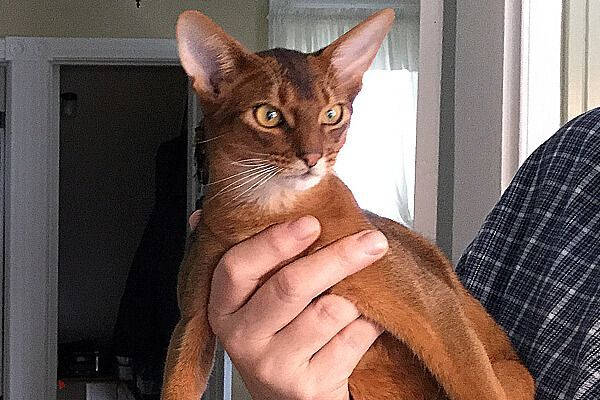
- How do cats perceive people?
- What are cats thinking about?
- Cats get attached and love their owners
- Smells
- Cat telepathy
- What does the cat think about and how does it perceive us humans. Do we know anything?
- What do owners need to know?
- Here are some examples
- What scientists say
- When the master returns from shopping
- Do cats think about things?
- How are cats able to think?
- What do cats think about and do they think at all?
- What cats think about
- Do cats think of their owners?
How do cats perceive people?
According to Dr. John Bradshaw from the University of Bristol, whiskers do not distinguish between cats and humans in principle. They consider both to be creatures of the same species, albeit different in appearance. In the head of cats on this account formed some kind of mess. Either cats, they think, are people too, only small and fluffy. Or people are cats, just by an absurd coincidence they turned out that way, big and hairless. According to Dr. Bradshaw, this is a basic key to understanding cat psychology. "Cats obviously take into account the fact that humans are much larger than they are," he says. – But they stubbornly do not want to know their place, to build their social behavior. Cats in general show the same patterns of behavior, interacting with people or other cats, making no difference. They always express their likes and dislikes in the same ways.
Cats, undoubtedly, consider themselves equal to us, so they behave accordingly. As if you did not get a cat, but the cat got you, and out of mercy allows to live in your own house. And yet, according to Dr. Bradshaw, cats do not perceive us as stupid and underdeveloped creatures. On the contrary, they show their reverence and respect. The fact is that cats have their own social hierarchy: there are "senior" and "subordinate" cats. A leader cat, in particular, will never rub the cheek of a "subordinate", the weaker. But people-owners are honored with such an honor. It means that we are valued and respected – and it sets up an optimistic mood.
What are cats thinking about?
Cats live in almost every home, but studying their behavior is difficult enough. "They're not dogs who love to interact with humans," says Carlo Siracusa, a doctor at the University of Pennsylvania School of Veterinary Medicine. – Cats shut down when they're brought into the lab. They are territorial creatures who are very attached to their homes. Therefore, they should also be observed where they live and feel comfortable."
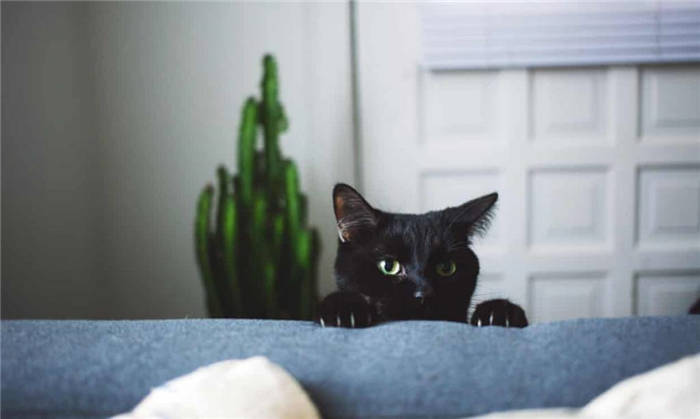
When a cat is brought into the laboratory its behavior changes radically. That is why there is no point in studying it. Scientists have found a solution: they observe their house cats.
"I constantly monitor my cat's behavioral habits," says Dr. Saho Takagi of Kyoto University. – I've always been attracted to their mysteriousness. How do they perceive the world? What do they think about? Do they have thoughts? These questions motivate me to go further in my research.
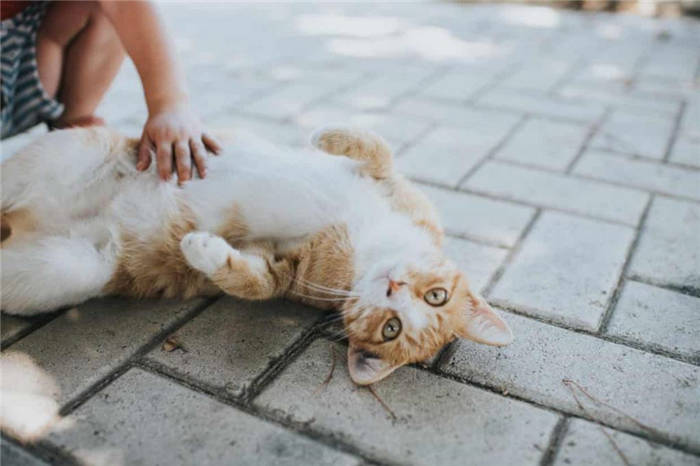
It was Saho Takagi who co-authored the study in which scientists studied the perception of space by cats. It turned out that our pets can track the location of their owners just by their voice. "Cats are vigilant for every movement of people," Saho says. – "They worry about their owners and are constantly trying to anticipate where they will go next.
Cats get attached and love their owners
There is a stereotype that cats are the most indifferent pets. They don't like people, but only use them to get some affection and delicious food. "That's not true," says Syracuse. – Cats get attached to people, but they express their love differently than the same dogs. They don't need to rub and purr all the time. But it's important for cats to be close to their owners. For example, they show their love when they sleep next to people. Physical proximity is more important to them than direct contact. Cats usually don't like to be picked up, cuddled and kissed."
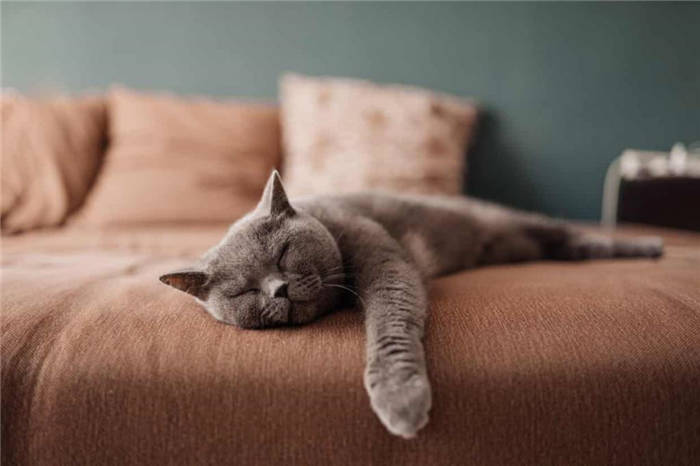
These animals get attached to their owners and may even show concern for them. They don't express their love the way humans or dogs do. "Cats behave completely differently," continues Syracuse. – Humans like to cuddle. Dogs jump and wag their tails. Cats just need to be around each other. Sometimes they come over, rub against the person and go away. This is quite enough for them.
Smells
Smell is one of the main instruments of a cat's perception of the world around.
Living with humans, the cat has not lost this tool. If the kitchen smells delicious meat, any cat will be there faster than the rest of the household.
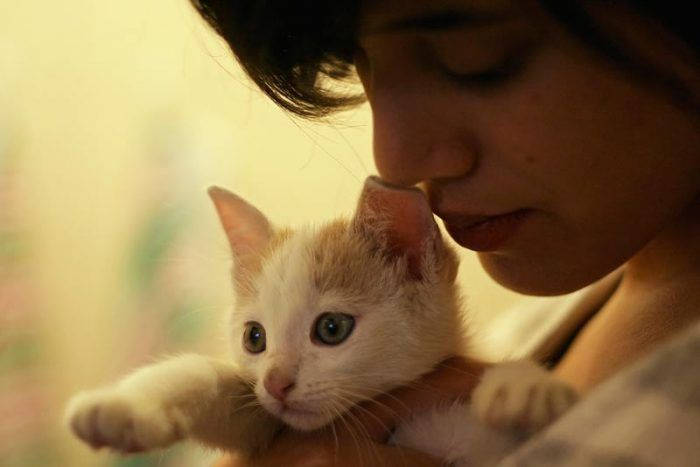
It's not without reason that encouraging scents are used to instill the necessary skills, for example, to the litter box or scratching post. As well as discouraging – to discourage pooping or spoiling the furniture.
By the subtlest smell of a human, a pet can unmistakably determine what emotions its owner is experiencing – fear, joy, anger, or peace.
Some scientists believe that it is due to their sense of smell that cats understand human desires. The difference in the structure of the speech apparatus does not allow cats to learn to speak and therefore hear. But true animal lovers reject these claims and sincerely believe that pets understand them at all times.
Cat telepathy
Since ancient times, the theory that cats are mystical animals, almost capable of reading and transmitting thoughts, real telepaths, has not lost its relevance.
According to psychics, you should spend a lot of time with the cat and communicate with him only mentally, looking exactly in his eyes, giving signs of attention and caressing.
The amazing thing is that fully domesticated pets often really understand the owner intuitively and in critical situations fulfill his requests without fail. For example, in the besieged Leningrad there were cases when cats simply saved their housemates from starvation by bringing the prey to their owners instead of eating it themselves. While wild cats, lions, tigers, panthers, even when trained from birth, often refuse to follow commands.
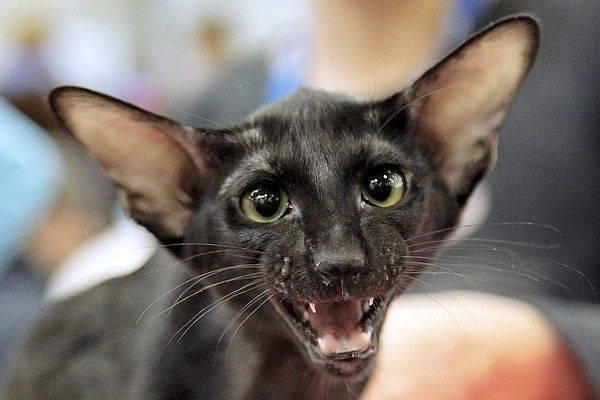
What does the cat think about and how does it perceive us humans. Do we know anything?
All of us, cat owners, periodically ask ourselves this question. So John Bradshaw, author of several books about cats, who for 25 years studied their behavioral reactions, tried to answer it. And this is what he found out.
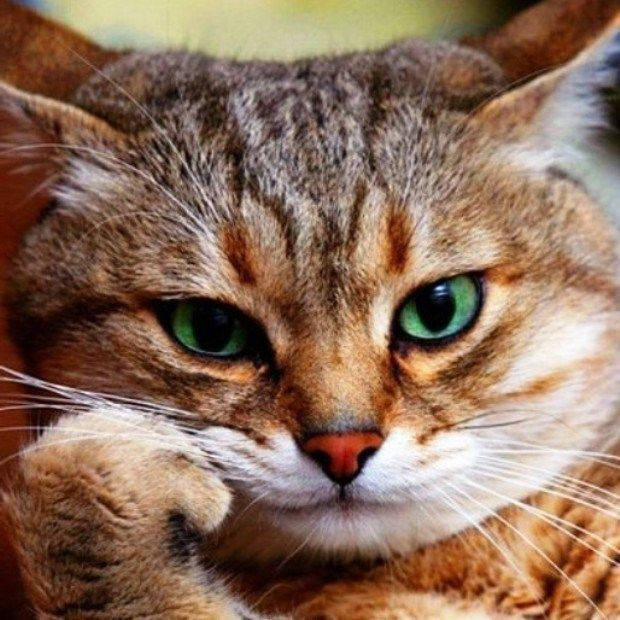
A cat does not perceive a person as a friend or master, but as a creature of its own kind. Only a big, insufficiently graceful and clumsy cat can stumble several times a day, missing the moment of its appearance underfoot.
Cats' thoughts are all driven by their natural needs. Their thinking is situational. If a cat is hungry, it arranges its behavior in such a way that it gets what it wants as quickly as possible, and it uses familiar methods: it shouts to its owner, moves around, goes to the bowl and meows persistently. He doesn't think about how to get what he wants, but acts according to the situation.
Their behavior depends on their upbringing: some will jump on the table or steal food from the table, while others will patiently wait until the man takes food and fills the bowl. A hungry animal can express its joy and pleasure at what is happening by rubbing against our feet and purring loudly.
By the way, rubbing against a body part indicates the cat's disposition toward you. Not everyone is accorded this honor. Some cats are perceived as friends, while others are indifferent or even a nuisance.
When a cat lives in an apartment, it thinks that it is its rightful home. It is very difficult to persuade her otherwise, you can only correct her behavior by methods of education. For example, to teach it to climb on the table or to sharpen its claws on the sofa upholstery.
A cat thinks of man as a stable element of its living space. This differs from dogs, which do not have "object permanence" in their thinking. That is, when a human disappears from the dog's sight, it is a great stress for him, he doesn't understand where he has disappeared to, whether he will return or not. The cat is not tormented by such thoughts precisely because of its ability to perceive its familiar surroundings as a constant.
What do owners need to know?
Cats are able to experience different emotions: to be sad, happy, angry, worried, afraid, and even "love", in their own way, their owners. Here it is worth understanding that their outlook is not only related to survival and their hunting instincts, but also to their owners. After all, owners play a big role in cats' lives – we are the source of all benefits.
But no matter how much cats love us, and no matter how much we want them to think like us, it is impossible. Cats can't think like we humans: with words, because cats don't have the Wernike zone in their brains, which is responsible for their speech. Cats are driven by feelings, and all their thoughts are related to their feelings.

Here are some examples
For example, if a cat is hungry, it will certainly think about food, but if it is full, then it will think more about rest, sleep, or how it would spend its energy, and play the hunter. If she notices the smell of a stranger, the cat will be immediately alert, because she will think that her territory is claimed. If a cat senses that it wants affection, it will come to its owner.
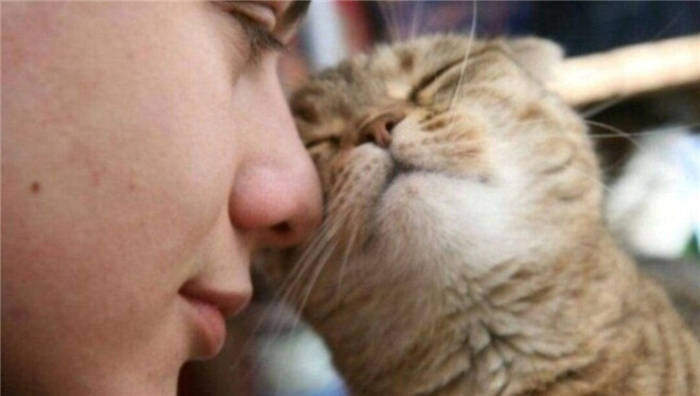
What scientists say
According to the scientists' opinion, cats are very reasonable animals, because it is rather difficult for predators, which cats are, to survive in the wild without thinking over their every move. In addition, pets have complex instincts that are the precursors of intelligence. But in most cases owners cannot understand their pet's true thoughts and do not know if cats can think at all.
Cute pets are by nature freedom-loving animals and have their own feline natures, so they believe that the owner's home is their territory, on which the human has settled.
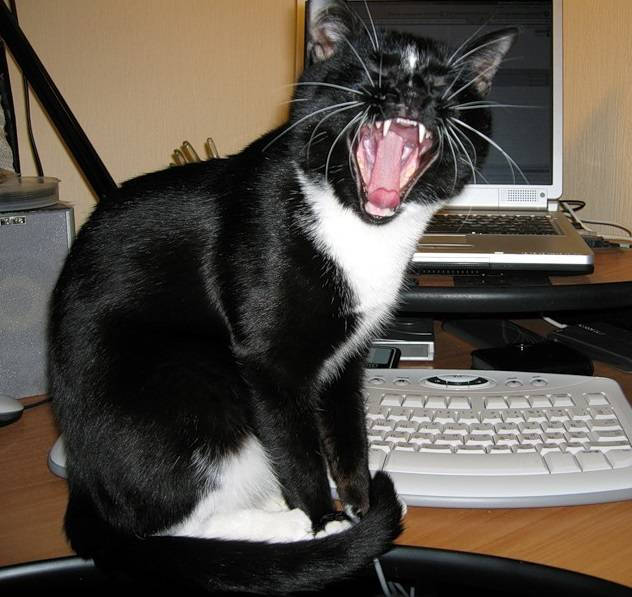
Cats are happy to sit next to their owner when the owner is busy doing something
Researchers of cat behavior express the opinion that cats think that they are masters of humans. Consequently, they are obliged to please them and satisfy their requests for food. That is, for them the master is the provider of food.
When the master returns from shopping
Do cats know how to think, this is a question of interest to many loving owners. Cats are not only playful purring creatures, they can understand many things from human life and often manipulate people by learning simple rules.
Interesting! To understand how cats think, it is worth considering that pets are quite quick to learn people's mannerisms and gestures.
For example, they remember the actions of a person prior to going shopping. Accordingly, the pet will wait for the return of the provider from the store, because various goodies in addition to food are often bought for him.
It is not uncommon for owners to show what they have bought for their pet and offer to look inside the bag. In this way, the animal remembers the meaning of the ritual. In the case of a human taking the same bag, the cat already believes that its owner is going to get food for it. How not to believe after that, whether cats have thoughts.
Do cats think about things?
A cat's aloof and mysterious behavior may give the impression that it is a thoughtless animal. In fact, cats can think about different things, but not on the same level as humans. However, cats cannot think about:
They can't dream or ponder the meaning of things because they don't have a default mode network. The default mode network is a group of brain segments that are interconnected and activated when humans are inactive. Whenever we are not focused on a goal, we let our mind wander, and our default mode network is activated.
Through this network, we are able to think more deeply about ourselves and how we feel. Scientists have yet to find a similar default mode network in any animal. This is why animals like cats seem so simple-minded. It doesn't mean that cats are stupid or thoughtless. It just means that they can't think about the world or themselves.
How are cats able to think?
Cats are not capable of contemplation, so they only think about things indirectly. For example, when a cat is resting with its eyes closed, it does not think about anything. However, if you walk up to a cat and give it a new toy, it will use its working memory to learn about the new object.
Specifically, she will mentally imagine the toy and subconsciously try to relate it to previous experiences. This will help the cat determine if it is safe to approach the toy. Depending on the previous experience, the cat will react differently. This is why some cats pounce on new toys at first sight, while others show no interest, and still others are frightened.
This working memory, which cats use, is active only when new information is presented to them. After a cat has become familiar with a toy, it will not think twice about playing with it. After all, by this point she is acting on instinct.
What do cats think about and do they think at all?
The great Russian neurophysiologist Ivan Petrovich Pavlov fined his employees for distractions that are not part of their direct duties. Approximately the same way, for example, A.F. Ioffe could have fined an employee of Phystech, who would have started inventing a new composition of gunpowder.
Instinct? Of course! But within any instinct, there are variants of behavior for the strong and for the weak; for singles and for the community (e.g., mothers with cubs). and so on and so forth.
This is why it is impossible to survive in nature without thinking of something! In any situation, in any second, one must choose the right behavior to save oneself, to be fed, etc. Even Darwin showed that mental and behavioral adaptations, first, are ahead of the evolution of the body, and second, they are much more efficient for survival. It is now known that 80% of the energy from food is spent on intellectual and emotional activities.
Among other things, a cat is a predator. And in order to hunt, the intellect must be developed much more than to get to the meadow with grass.
Pets have to think even more than wild animals and even street animals. They depend on humans for their lives, and therefore have to study humans, the patterns of their behavior and the common way of life with them.
What cats think about
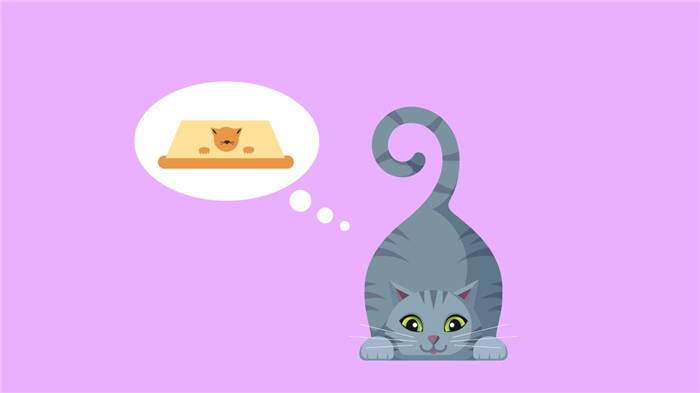
Cats don't care about jewelry or money, nor are they preoccupied with work tasks. Here is a list of issues that occupy a cat's mind:
- The most important resource is food. The cat may be thinking about being hungry and how to get food: hunt / yell at its owner or paw at its feet.
- Safety – the cat thinks about whether it is safe, whether something is threatening its life.
- Sleep – if she can sleep, is it a safe time to do so.
- Pain – if something is bothering the cat, it will think about the sore spot.
- In a sense its appearance – grooming calms the cat, it can't help but think about it.
- About the owner – the cat thinks about him when there is a need, a need for affection and care.
Also, cats can concentrate on an object. If a cat has found a place to store treats, it will seek it out even if it can't see the treat or hear its scent. The same goes for other objects that are not as necessary to the cat, but have piqued his interest. For example, the shoes you put away in the closet are not miraculously gone for the cat. And to a dog you, if you performed such an action, are a Houdini illusionist.
Do cats think of their owners?

For cats, their owners are big cats. This is the opinion of John Bradshaw, doctor, behaviorist and author of the book Cat Sense, from the University of Bristol. According to John's research, cats don't change their behavior pattern regardless of whether it's another cat or a human in front of them. And also, according to Bradshaw, cats think they can control their own owners through purring and milk step, for example, and spend a lot of time learning and memorizing all their behavioral patterns.
Cats love their owners and think about them a lot, don't even doubt it!






